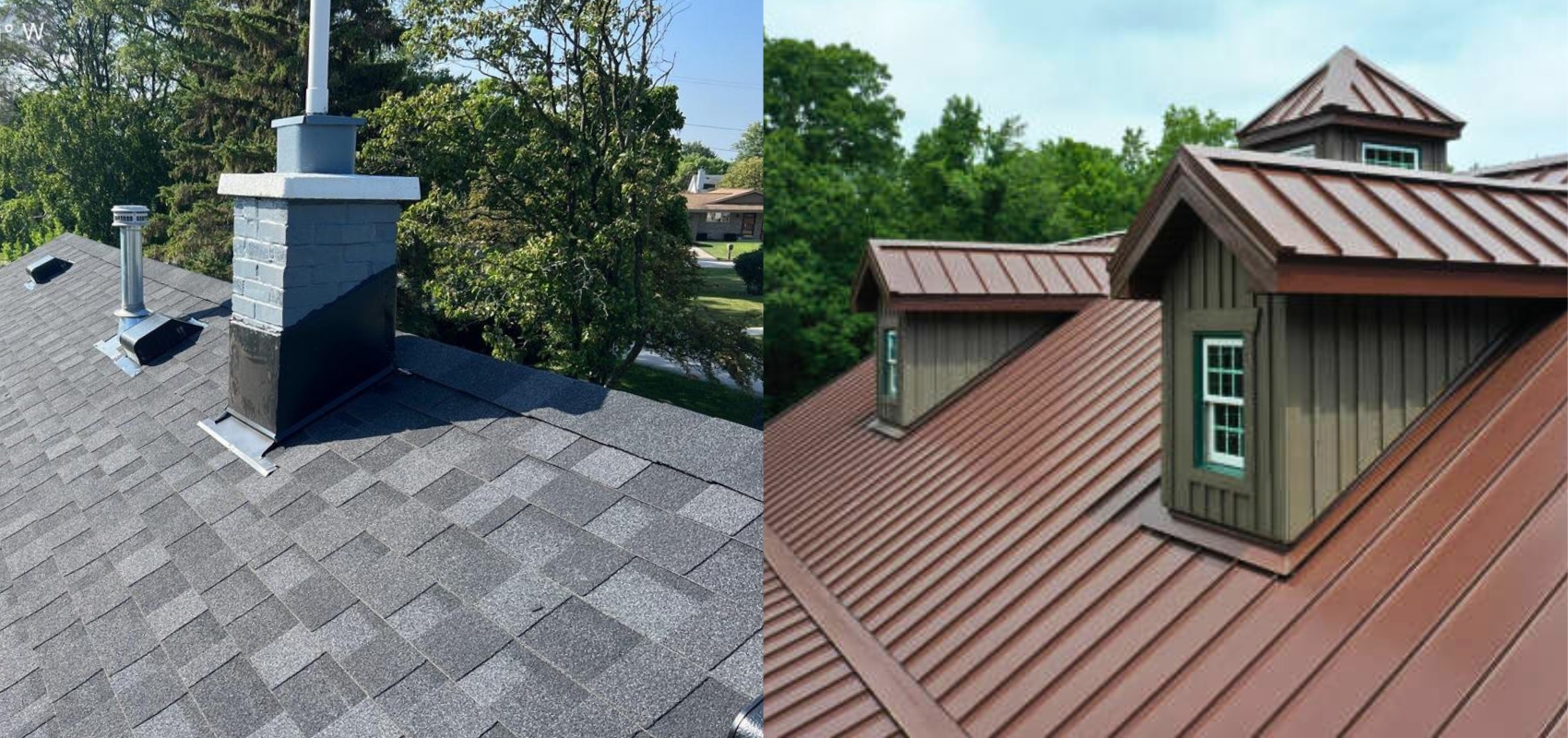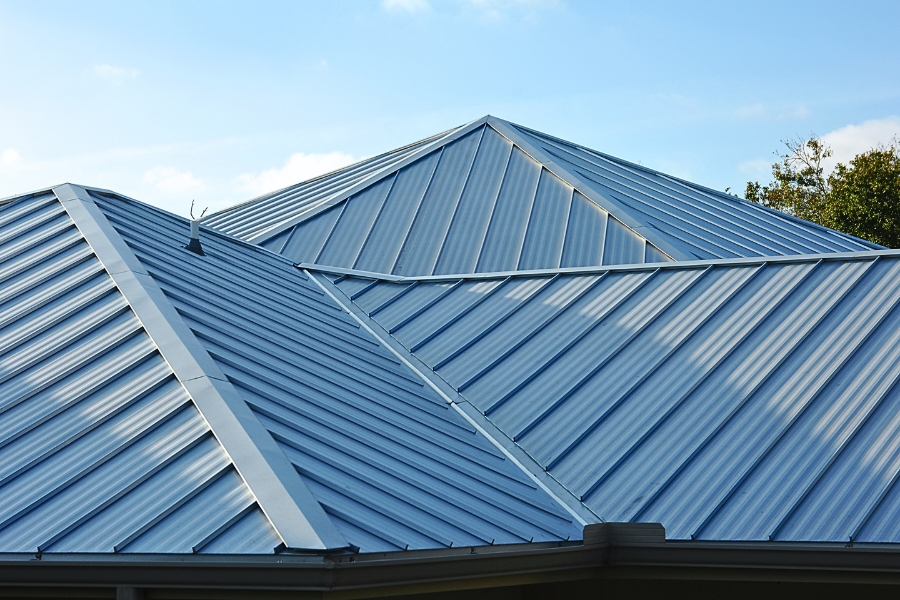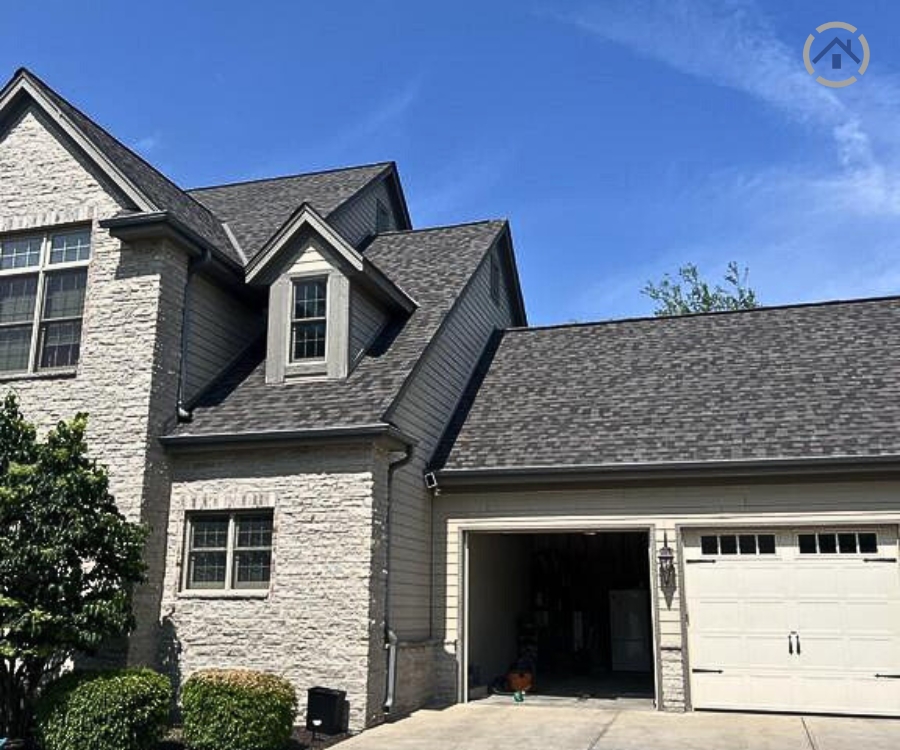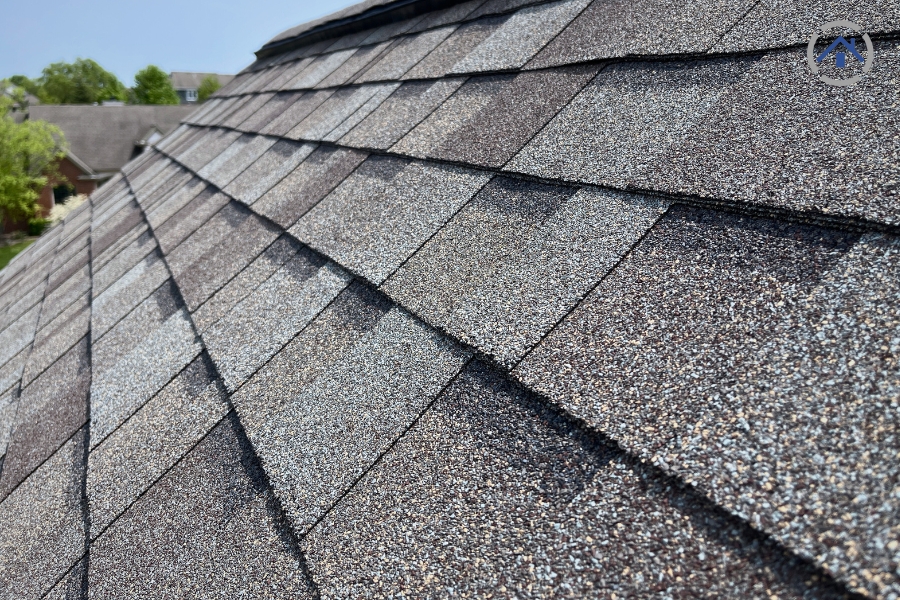
Are you in the process of considering a new roof or unhappy with your current one? If so, you may be wondering about the best roofing options available to meet your specific needs and preferences.
Among the most popular choices are metal and asphalt shingle roofs, each offering unique advantages and considerations. Questions may arise about these roofing systems' durability, affordability, lifespan, and which one will be more suitable for homes in the Wisconsin area. To help you make an informed decision, we'll explore the characteristics of both metal and shingle roofs using their pros and cons, providing insights to guide you toward the best roofing solution for your home.

A metal roof is an excellent option if longevity is at the top of your priorities for your roofing choice. With a lifespan ranging from approximately 40 to 70 years, metal roofs surpass many other roofing materials in terms of longevity. Investing in a metal roof ensures that your home remains well-protected and secure for several decades, offering peace of mind and minimal maintenance requirements over its impressively extended service life.
Metal roofs are known for their exceptional durability and resilience. Depending on the chosen product and proper construction, they can withstand wind gusts of up to 140 miles per hour, remain corrosion-free, and offer impact resistance. These features make metal roofs an excellent choice for areas with severe weather conditions, ensuring long-lasting protection and minimal maintenance requirements for homeowners.
Metal roofs are highly reflective, capable of reflecting up to 70% of the sun's energy back into the atmosphere. Unlike other roofing systems, metal roofs reflect the sun's UV rays rather than absorb them, reducing heat absorption. The roof remains cooler by reflecting heat away from the home, leading to a more comfortable living space and decreased cooling energy needs.
Metal roofing stands out as one of the most sustainable roofing options available. Since metal roofing often contains a significant percentage of recycled materials, reducing the demand for new resources and minimizing the environmental impact during manufacturing. This aspect contributes to conserving natural resources and reducing waste.
With lifespans that can extend up to 40 to 70 years, metal roofs outperform many other roofing materials, requiring fewer replacements over time. This longevity significantly reduces the waste generated from roof replacements, further supporting sustainability efforts.
At the end of its long service life, metal roofing is 100% recyclable. The materials can be reused and repurposed for other products or even to manufacture new metal roofs. This closed-loop recycling process ensures that the materials continue contributing to sustainability efforts even after their initial use as roofing.
A metal roof can provide a long-lasting and durable solution for homeowners, but it comes with a higher price tag than other roofing materials. The price range for a new metal roof typically falls between $9,150 and $16,743, reflecting the various factors and options involved.
Metal roofs can be noisier than other roofing materials, especially during heavy rain, hail storms, or thunderstorms. The sound of raindrops hitting the metal surface can create a drumming effect, which some homeowners may find louder or more noticeable compared to other roofing materials.
Although metal roofs are known for their durability and resilience, they can still be vulnerable to dents caused by hail or falling branches. It's important to remember that not all types and metal gauges are created equal when it comes to resistance to damage. For example, aluminum is generally more corrosion-resistant but might be more prone to denting than steel.
Metal roofs are often installed in larger panels or sheets, which can be more challenging to repair in comparison to individual shingles. Repairing metal roofs might require replacing entire sections or panels, depending on the extent of the damage. Additionally, metal roofs often require special tools and expertise to repair effectively.

Homeowners prefer asphalt shingle roofs because they are more widely available and have an initial cost of about half that of metal roofs. Aside from that, building asphalt roofs is far less expensive than installing metal roofs.
On average, a shingle roof for a 1,500-square-foot home can cost between $5,000 to $18,000, but the final price can be higher or lower depending on the specific materials and installation requirements.
The asphalt shingle roof presents an extensive array of options and choices, catering to diverse preferences and styles. With its versatility, homeowners can easily find the perfect asphalt shingle that complements the aesthetics of their property while enjoying the benefits of durability and cost-effectiveness.
Asphalt shingle roofs are generally easier to install compared to metal roofing. The installation process is relatively straightforward, and many roofing professionals can handle the job with basic tools and minimal specialized knowledge. Shingles can sometimes be installed in just a day or two, making the installation process quick and efficient. Additionally, asphalt shingles can be installed directly over an existing layer in certain situations, reducing the need for complete roof removal.
Compared to metal roofs, shingled roofs are generally easier to repair. Shingled roofs consist of individual shingles that can be replaced or repaired one at a time, making it simpler to address localized damage, such as a damaged or missing shingle. Roofing professionals can easily remove the damaged shingle and replace it with a new one, minimizing the scope of the repair work.

Asphalt shingle roofs generally have a shorter lifespan compared to metal roofs. The lifespan of shingle roofs typically ranges from 20 to 40 years, depending on various factors, including the type of shingle material used, the quality of workmanship during installation, and the prevailing weather conditions in the location where the roof was installed.
Weather plays a significant role in the wear and tear of shingle roofs. Despite being designed to shield homes from various elements, including snow, rain, strong winds, and the sun's heat, shingles gradually deteriorate over time due to continuous exposure. Issues such as granule loss, cracking, and curling can occur.
Asphalt shingles, being a petroleum-based product, contribute to the demand for fossil fuels, which are known to produce greenhouse gases and contribute to climate change. As the popularity of asphalt shingles continues, the dependency on fossil fuels increases, leading to a rise in air pollutants and environmental impact. The extraction, processing, and transportation of petroleum-based materials for manufacturing asphalt shingles generate carbon emissions and other harmful pollutants.
When deciding between a metal roof or asphalt shingle roof, one crucial factor to consider is how long you intend to reside in your current home. Understanding this timeframe is essential as it can significantly impact your roofing decision. According to statistics, the average US family stays in one home for approximately five years.
If you envision a shorter stay in your current residence, factors like upfront cost, immediate needs, and potential resale value might take precedence. In contrast, if you plan to stay longer, factors such as durability, maintenance, and long-term cost-effectiveness may become more critical considerations. Evaluating your future plans and duration of stay will help you align your roofing choice with your specific needs, ensuring a well-informed decision that suits your circumstances best.
Metal roofs typically have a higher upfront cost, ranging from approximately $15 to $20 per square foot, compared to shingle roofs, which generally cost between $4.5 to $6 per square foot. While metal roofing may be more expensive initially, it's essential to consider the long-term costs, including repairs.
Shingle roof repairs can be relatively affordable, starting at around $250 for minor fixes. In contrast, metal roof repairs can often be more expensive, potentially costing thousands of dollars, depending on the extent of the damage. Therefore, considering your budget and long-term financial goals, homeowners should weigh both the initial cost and potential repair expenses when deciding between metal and shingle roofs.
Both metal roof and asphalt shingle roofs have their distinct merits, making them popular choices in the roofing industry. Metal roofs boast exceptional durability, withstanding harsh weather conditions, and lasting 50 years or more with proper maintenance. Although they require a higher initial investment, their long-term cost-effectiveness and energy efficiency make them attractive for homeowners seeking a durable, eco-friendly roofing solution. On the other hand, asphalt shingle roofs offer a wide variety of options and are more budget-friendly upfront. While they may have a shorter lifespan, around 20 to 40 years, their affordability and ease of installation make them a practical choice for short-term occupants or those with budget constraints.
Ultimately, the best roofing option depends on individual preferences, the property's specific needs, and long-term financial considerations. Consulting with roofing professionals and carefully evaluating the unique features of each roofing system will guide homeowners toward making a well-informed decision that ensures lasting protection and satisfaction for their homes.